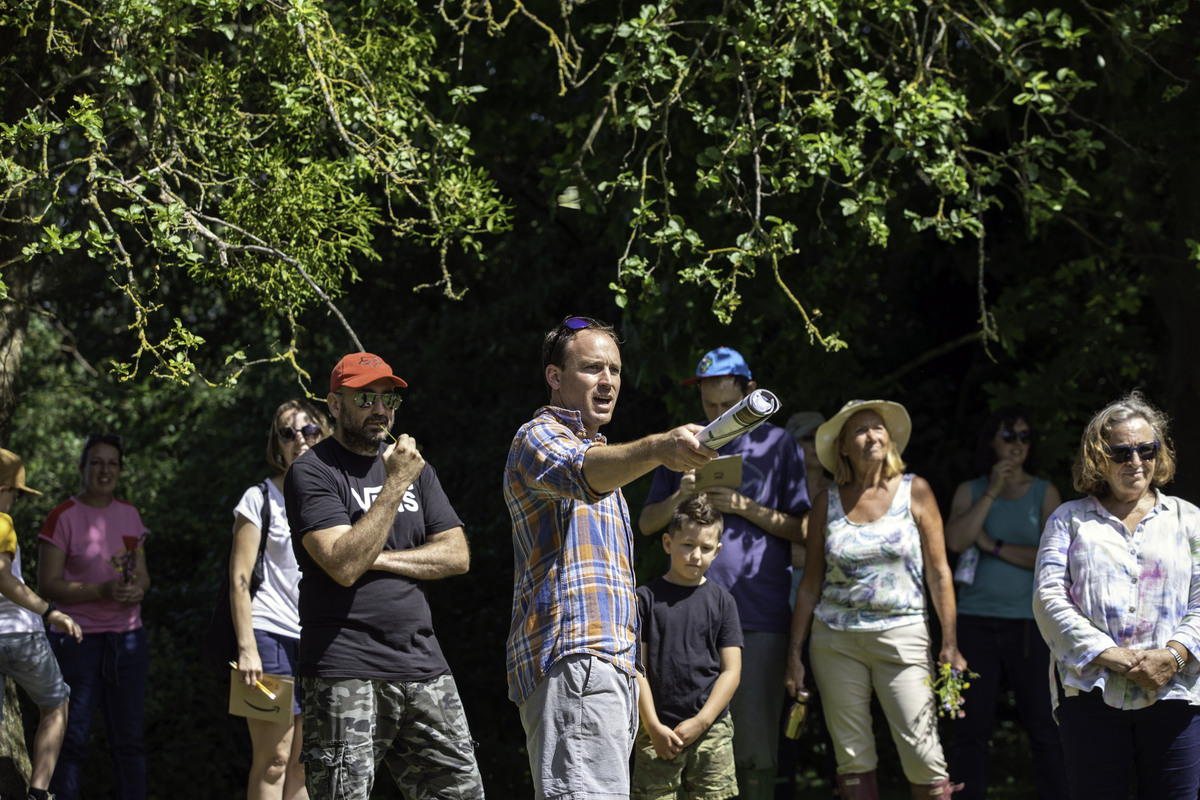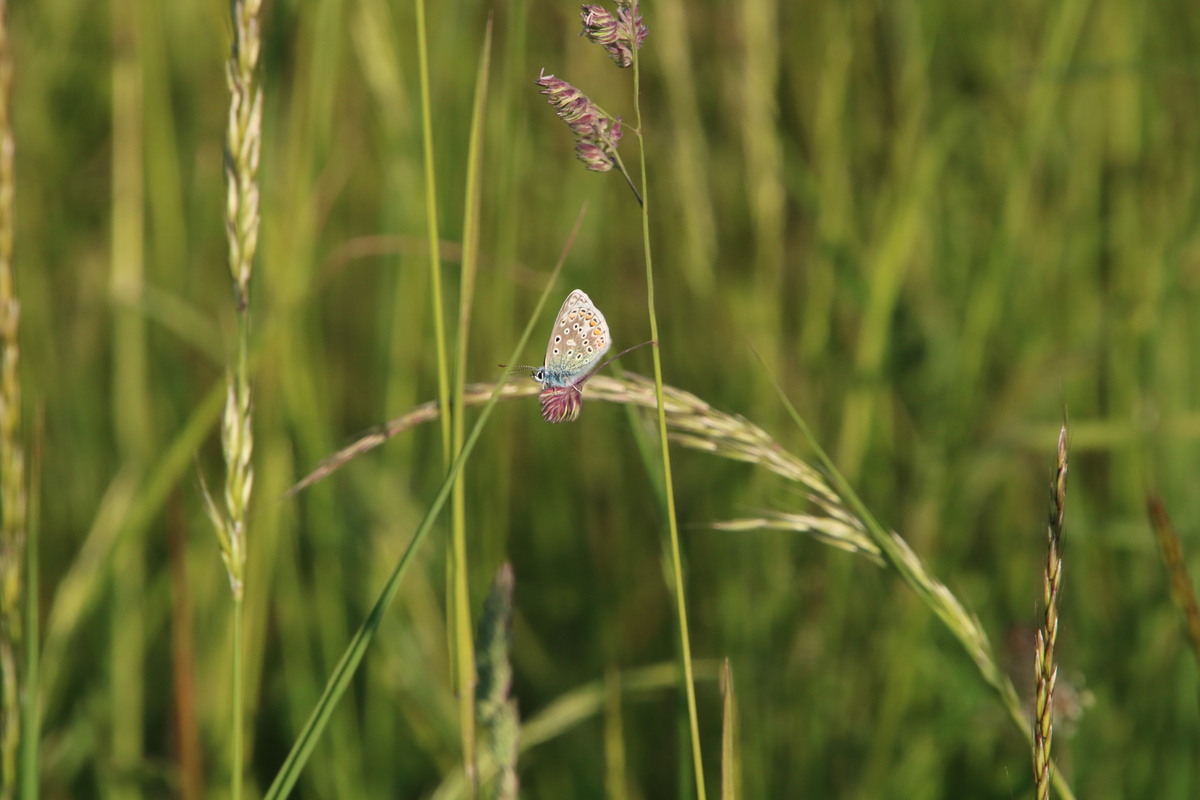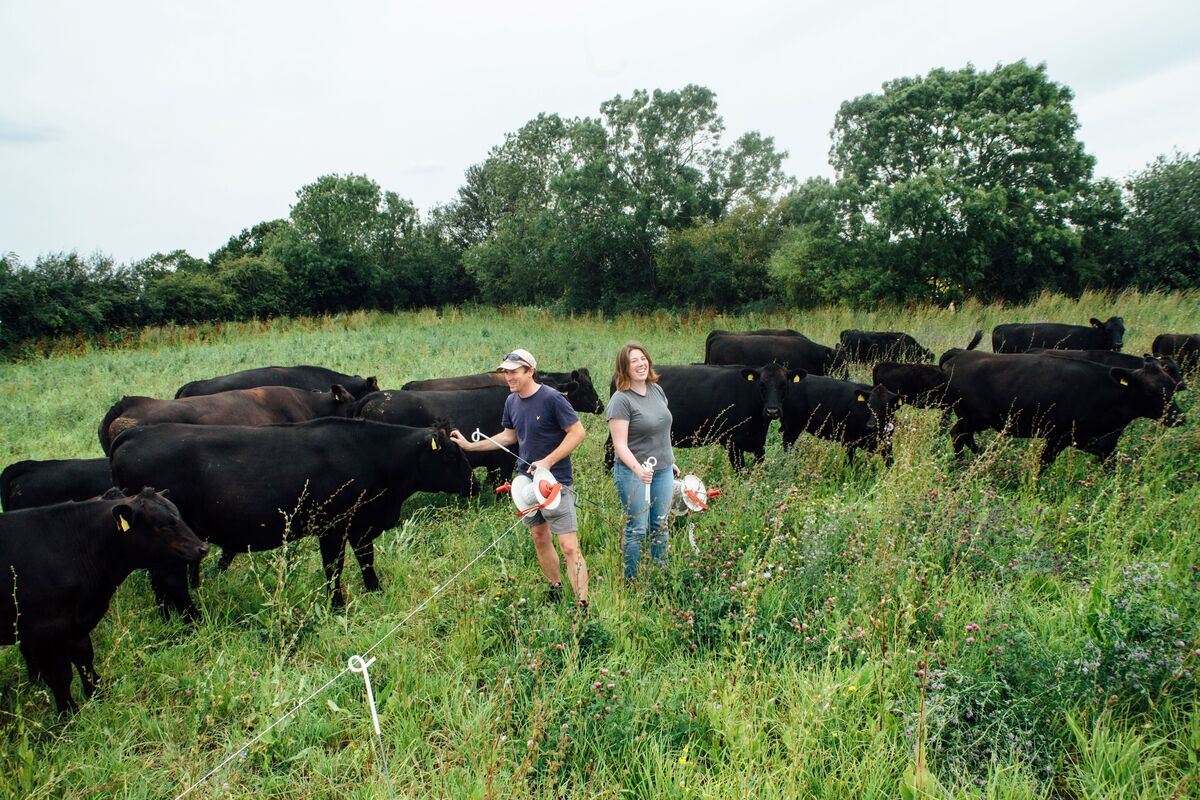Cows are rotated twice a day in small, concentrated, groups to feed on herb-rich grassland, while the roots in the soil capture harmful carbon dioxide and store it underground.
The farming system used at Humphreys Farm, north of Chelmsford, has ensured the farm is carbon negative, meaning it is removing more carbon dioxide from the atmosphere than it is producing.
It has boosted biodiversity, with birds, bees, butterflies, worms, spiders and a variety of insects thriving in the 192 acres of farmland. The health of the farm’s 60 Aberdeen and Wagyu breeding cows has also improved.
This work was recognised in 2023 when the farm won the VetPartners Sustainable Beef Farm of the Year award, after being nominated by vet Mia Ellis, of Wespoint Farm Vets, in Chelmsford.

The farm is run by husband-and-wife Sam and Kate Squier who passionately believe they, and many other farmers, are showing how livestock farming should be viewed as part of the solution to the climate crisis.
While global leaders discuss the future of the planet at COP28 in the United Arab Emirates, environmental farming systems, such as those being carried out by the Squiers, are seeing a resurgence as farmers across Britain strive to help the United Kingdom achieve its net zero target by 2050.
The NFU has voluntarily set its own ambitious target to reach net zero for greenhouse gas emissions across the whole of agriculture in England and Wales by 2040.
“It is so satisfying to see the impact of the changes we’ve made. I find it mind-blowing to see how quickly nature can regenerate if you give it the chance."
Farmer Sam Squier

Sam said: “I think the general perception of cattle farmers and their impact on the environment isn’t fair. With the right farming system in place, livestock farmers can make a really positive impact and I think we and, many other farmers out there, are showing that. There is some amazing work being done out there.”
Selling direct to the public
The Squiers sell all their beef and free-range turkeys direct to customers on farm and to two local pubs, reducing food miles. They are passionate about helping the public to understand more about environmental farming and regularly host farm tours.
Sam, a third-generation tenant farmer, moved into the environmental farming system after watching a short video about grazing herbal leys. He then completed a 14-day course a FarmED, a farming and food education centre in the Cotswolds.
By 2018 herbal leys had replaced the arable cropping entirely under a Countryside Stewardship Scheme, with grant-funded fencing and water infrastructure in place for grazing livestock.
Sam said: “The video struck a chord with me. I knew straight away this is how I want to farm. I’ve been a farmer for 22 years and the last few years have by far been the most enjoyable.
“We decided to not make every business decision based on the bottom line, but to look at the bigger picture.
“That has actually made the business more profitable. The farming system means the farm is more drought resistant and we have no need for fertilisers. Vet fees have also been reduced as the cows are much healthier.”
Hosting farm walks
He added: “It is so satisfying to see the impact of the changes we’ve made. I find it mind-blowing to see how quickly nature can regenerate if you give it the chance.
“It is great to see how much interest there is from the public. We regularly get 30 to 40 people on our farm walks, with people asking questions about things like carbon sequestration.
“It gives me a lot of hope for the future of environmental farming. I think there are lots of opportunities for young people with fresh ideas to join the farming industry. There will always be challenges that come along but there is a lot to be positive about.”
